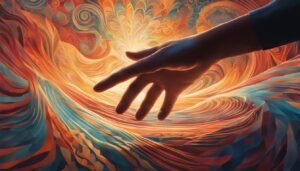Exploring the Symbolic Messages in Dreams: Unveiling the Unconscious
Dreams have long been a subject of fascination and intrigue, with their enigmatic symbols and perplexing messages. Many experts believe that dreams serve as a window into the subconscious mind, unveiling hidden thoughts and emotions that are not readily accessible in our waking state. But what exactly are these symbolic messages in dreams, and how can we decode them to gain a deeper understanding of our inner selves?
Symbolism plays a crucial role in the interpretation of dreams. Often, the dream imagery we experience is laden with symbols that hold personal significance. These symbols can be objects, animals, people, or even abstract concepts that represent deeper meanings and emotions. Unveiling and deciphering these symbols can help us unravel the mysteries of our unconscious mind, providing valuable insights into our desires, fears, and unresolved conflicts. By exploring the symbolic messages in dreams, we embark on a journey of self-discovery and gain a better understanding of our own psyche.
The Mysterious Connection Between Dreams and Mortality
Dreams have long fascinated and perplexed humans, partly due to their ability to tap into the deeper realms of our consciousness. Among the myriad of themes that can arise in dreams, one of the most intriguing is that of mortality. Often, dreams involving death or dying can leave us pondering their symbolic nature and potential connection to the fleeting nature of life itself.
When we experience dreams related to mortality, it is important to approach them with an open mind and without preconceived notions. These dreams may not necessarily be prophetic or literal reflections of our own mortality, but rather a metaphorical representation of change or transformation. Through exploring the symbolic messages embedded within these dreams, we can gain insight into our fears, our desires for growth, and our need to embrace the ever-changing nature of existence. The mysterious connection between dreams and mortality offers an opportunity to delve into the depths of our subconscious, uncovering hidden meanings that can illuminate our waking lives.
Unraveling the Hidden Meanings Behind Nightmares: A Glimpse into Our Fears
Nightmares, those unsettling and often terrifying dreams that visit us in the darkness of the night, carry with them hidden meanings that offer a glimpse into our deepest fears. While nightmares are distressing and can leave us in a state of unease upon waking, they serve a purpose in our psychological landscape. They provide a channel for our unconscious mind to communicate with us, shedding light on unresolved conflicts or repressed emotions that we may not be consciously aware of.
When we unravel the hidden meanings behind nightmares, we gain a better understanding of ourselves and our fears. These dreams often manifest as exaggerated versions of our anxieties, presenting us with scenarios that tap into our deepest insecurities. For example, the recurring nightmare of falling can reflect a fear of losing control or a sense of powerlessness in our waking life. By delving into these symbolic messages, we can confront our fears, address underlying issues, and ultimately experience personal growth and transformation.
Understanding the Role of Death in Dreams: A Gateway to Transformation
Dreams have long been a source of fascination and intrigue for both researchers and individuals seeking to understand the depths of the human mind. Among the vast array of dream themes and symbols, one that consistently stands out is death. The role of death in dreams has been subject to much analysis and speculation, with many believing that it serves as a symbolic gateway to transformation.
When death appears in our dreams, it is often not a literal representation of our impending mortality, but rather a metaphorical journey towards inner growth and personal change. Dream analysts suggest that death in dreams signifies the end of a certain phase or aspect of our lives, allowing us to embrace new beginnings and transformation. It serves as a catalyst for self-reflection and introspection, nudging us towards a path of self-realization and personal development. As we navigate the symbolism of death in our dreams, we open ourselves up to profound insights and revelations that can guide us on our journey of transformation.
The Psychological Significance of Death Imagery in Dreams
Dreams have long fascinated psychologists, as they provide a unique window into the human psyche. One aspect of dreams that has garnered particular attention is the presence of death imagery. Symbolic representations of death in dreams can be unsettling to individuals, as they often evoke deep emotions and a sense of existential dread. However, beneath the surface, these dreams hold profound psychological significance that can shed light on inner conflicts, unresolved emotions, and even the process of personal transformation.
When death imagery appears in dreams, it is crucial to approach these symbols with a nuanced understanding. Contrary to popular belief, dreaming of death does not necessarily signify an impending physical demise. Instead, it is more often a symbolic representation of psychological or emotional changes occurring within the dreamer. This can include the death of old ways of thinking, the end of relationships, or the resolution of internal conflicts. By delving into the psychological significance of death imagery in dreams, we can gain valuable insights into the inner workings of the human mind and the depths of our unconscious desires and fears.
Analyzing Dream Symbols Related to Mortality: What They May Indicate
Dreams have long been a source of fascination and intrigue, offering a glimpse into the depths of our unconscious mind. One aspect of dreams that has captured the attention of psychologists and researchers is the presence of symbols related to mortality. These symbols can take various forms, such as death, tombstones, or the presence of deceased loved ones. While the interpretation of these symbols may vary from person to person, researchers believe that they may indicate deeper psychological and emotional states.
The presence of symbols related to mortality in dreams may serve as a reflection of our subconscious fears and anxieties about death. Death, being a universal and inevitable part of life, can evoke a range of emotions and thoughts. When these emotions and thoughts find expression in our dreams, it provides an opportunity to explore our beliefs, fears, and attitudes towards mortality. The interpretation of these symbols can also shed light on our perceptions of loss, grief, and the process of transformation. By analyzing dream symbols related to mortality, we can gain insights into our own psyche and potentially uncover unconscious beliefs or desires that may be influencing our waking lives.
Dreaming of Departed Loved Ones: The Power of the Subconscious Mind
Dreaming of departed loved ones is a phenomenon that has been reported by many individuals throughout history. The power of the subconscious mind is believed to play a significant role in these experiences. When we sleep, our conscious mind takes a backseat, giving way to the subconscious to take control. In this state, memories, emotions, and even the presence of our loved ones who have passed away can surface in our dreams.
These dreams can evoke a wide range of emotions, from comfort and joy to sadness and longing. Some individuals find solace in these dreams, as they provide a sense of continued connection and communication with their departed loved ones. It is believed that the power of the subconscious mind allows for this interaction and provides a source of healing and closure for those who are grieving. While the rational mind may question the reality of these dreams, the emotional impact they have on individuals cannot be denied.
Investigating the Cultural and Historical Perspectives on Death in Dreams
Dreams have long intrigued and fascinated human beings, and the cultural and historical perspectives on death in dreams further add to their mystique. Across different cultures around the world, dreams involving death have been interpreted in various ways, reflecting the unique beliefs and experiences of each society. In some cultures, such dreams are seen as harbingers of impending doom or a sign of bad luck, while in others, they are considered omens of transformation or spiritual awakening. These varying interpretations reveal the deep-rooted cultural and historical significance of death in dreams, shedding light on the profound impact that this universal human experience has had on our collective psyche.
Examining the historical perspectives on death in dreams allows us to understand how these beliefs have evolved over time. Throughout history, dreams have been regarded as powerful messages from the divine or supernatural realm. Ancient civilizations such as the Egyptians and Greeks considered dreams to be a means of communication with gods or deceased ancestors, often seeking guidance or foretelling future events through dream interpretation. In medieval times, dreams were viewed as premonitions, reflecting the spiritual and religious aspects of society. The cultural and historical lens through which death in dreams has been interpreted offers valuable insights into our ongoing fascination with dreams and the profound role they play in shaping our understanding of mortality.
Interpreting Death Dreams: Separating Fact from Fiction
Dreams have long been a subject of fascination and intrigue, with individuals often drawing meaning from these nocturnal experiences. Among the various types of dreams, death dreams have particularly captured the attention of both researchers and the general public. However, it is important to approach the interpretation of death dreams with caution, separating fact from fiction.
When it comes to understanding death dreams, it is crucial to remember that there are no universal symbols or meanings that can be applied to every individual’s dream. The symbolism and interpretations of dreams are highly subjective and can vary greatly depending on personal experiences, cultural background, and individual beliefs. Therefore, it is essential to avoid making sweeping generalizations or jumping to conclusions when interpreting these dreams. Instead, it is more helpful to consider the personal context and emotions associated with the dreamer’s experience to gain a deeper understanding. By doing so, we can begin to unravel the complex layers of death dreams and uncover their possible significance.
Harnessing the Wisdom of Dreams: Nurturing Personal Growth and Spiritual Awakening
Dreams have long been regarded as a powerful tool for personal growth and spiritual awakening. Throughout history, various cultures and civilizations have recognized the potential of dreams to provide insight into the deeper aspects of one’s psyche. Through the symbolic language of dreams, individuals can tap into their subconscious and gain a greater understanding of themselves and their inner world. By paying attention to the messages revealed within our dreams, we can harness their wisdom and use it as a catalyst for personal transformation.
Dreams offer a unique opportunity to explore and navigate the vast realm of the unconscious mind. The symbolic imagery that unfolds during sleep can guide us towards deeper self-awareness and facilitate personal growth. By acknowledging and analyzing the symbols, themes, and emotions that manifest within our dreams, we can unlock hidden aspects of ourselves, uncover unresolved emotions, and confront fears or challenges that may be hindering our progress. Through the process of dream analysis, we can gain insights into our desires, aspirations, and fears, providing us with the tools to make positive changes in our waking lives. Harnessing the wisdom of dreams can thus become a powerful tool for nurturing personal growth and embracing spiritual awakenings.
What is the significance of dreams in personal growth and spiritual awakening?
Dreams can provide insights into our unconscious mind and offer symbolic messages that can contribute to personal growth and spiritual awakening.
How can dreams unveil the unconscious?
Dreams serve as a window into our unconscious mind by revealing hidden thoughts, emotions, and desires that we may not be aware of in our waking life.
Is there a connection between dreams and mortality?
Yes, there is a mysterious connection between dreams and mortality. Dreams often contain symbols and themes related to death, which can offer insights into our fears and the transformational aspects of life.
What can nightmares reveal about our fears?
Nightmares provide a glimpse into our deepest fears and anxieties. By analyzing the hidden meanings behind nightmares, we can gain a better understanding of ourselves and our fears.
How does death play a role in dreams?
Death imagery in dreams can act as a gateway to transformation. It symbolizes the end of one phase of life and the beginning of another, offering opportunities for personal growth and spiritual development.
What is the psychological significance of death imagery in dreams?
Death imagery in dreams can represent psychological processes such as the need for change, the resolution of conflicts, or the acceptance of mortality. It reflects our subconscious thoughts and emotions regarding mortality.
How can dream symbols related to mortality be analyzed?
Dream symbols related to mortality should be analyzed by considering their personal meaning and cultural significance. Exploring the context and emotions associated with these symbols can provide valuable insights.
Can dreams involve departed loved ones?
Yes, dreams can involve departed loved ones. These dreams can be a powerful manifestation of the subconscious mind, offering comfort, closure, or messages from beyond.
What are the cultural and historical perspectives on death in dreams?
Different cultures and historical periods have varying interpretations of death in dreams. Exploring these perspectives can provide a broader understanding of the symbolism and significance of death in dreams.
How can death dreams be interpreted accurately?
Interpreting death dreams requires separating fact from fiction. It is important to approach the analysis of these dreams with an open mind and consider personal experiences and emotions associated with death.
How can dreams be harnessed for personal growth and spiritual awakening?
Dreams can be harnessed for personal growth and spiritual awakening by keeping a dream journal, analyzing dream symbolism, seeking professional guidance, and integrating dream insights into daily life practices.



